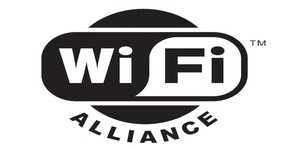Google has announced, among other hardware projects, its first mesh Wi-Fi system for the home, imaginatively dubbed Google Wifi [sic].
Following on from the company's OnHub router project, in which partner companies launch Google-certified routers supporting local, wide, and personal area networks (LANs, WANs, and PANs) with Bluetooth Smart, IEEE 802.15.4, and Google's Weave baked in, Google Wifi is a somewhat simpler initiative. Using the compact devices Google claims it can completely eliminate Wi-Fi blackspots in any building, by having them work cooperatively as a mesh network.
In traditional Wi-Fi networking, the client devices all connect to a single access point which jumps them onto a wired backbone network. Larger buildings typically require multiple access points to ensure coverage, which means running cables to each point - something Wi-Fi was supposed to avoid. Various solutions exist, each of which has its own disadvantages and drawbacks: Powerline networking means you don't have to run cables to the extra access points, but is prone to interference and shares a single chunk of bandwidth for all Powerline-connected devices; range extenders are simple and cheap, but again suffer from contended bandwidth through their use of a Wi-Fi uplink to the main access point.
The best solution, Google argues, is mesh networking. In a mesh model, all wireless nodes are free to communicate with any other wireless node. Unlike range extenders, it becomes simple to daisy-chain multiple nodes: if a node doesn't have its own backbone, it simply relays the signal to the next node in the mesh. Devices on the same node are free to communicate with each other without having to travel back to the main access point or router, and devices in nearby rooms will see their traffic travel only across the nodes required to reach each other - again avoiding an unnecessary journey back to the main access point or router and back again.
Mesh networking is nothing new, having been available in enterprise-oriented products and open-source packages for years, but Google claims its Wifi devices make it easier than ever. The devices also come with additional smartphone-driven features, including the ability to pause Wi-Fi connectivity on particular devices and prioritise the traffic of other devices.
Google Wifi will be available for pre-order in the US in November, the company has claimed, priced at $129 for a single access point or $299 for a three-unit bundle (around £101 and £235 respectively, excluding taxes.) International pricing and availability have yet to be confirmed, with more information available in the official launch announcement.
The Google Wifi devices were announced at the same event as Google Home, the company's answer to Amazon's Echo platform, the Google Daydream VR headset, and its Pixel and Pixel XL Android smartphones.
Following on from the company's OnHub router project, in which partner companies launch Google-certified routers supporting local, wide, and personal area networks (LANs, WANs, and PANs) with Bluetooth Smart, IEEE 802.15.4, and Google's Weave baked in, Google Wifi is a somewhat simpler initiative. Using the compact devices Google claims it can completely eliminate Wi-Fi blackspots in any building, by having them work cooperatively as a mesh network.
In traditional Wi-Fi networking, the client devices all connect to a single access point which jumps them onto a wired backbone network. Larger buildings typically require multiple access points to ensure coverage, which means running cables to each point - something Wi-Fi was supposed to avoid. Various solutions exist, each of which has its own disadvantages and drawbacks: Powerline networking means you don't have to run cables to the extra access points, but is prone to interference and shares a single chunk of bandwidth for all Powerline-connected devices; range extenders are simple and cheap, but again suffer from contended bandwidth through their use of a Wi-Fi uplink to the main access point.
The best solution, Google argues, is mesh networking. In a mesh model, all wireless nodes are free to communicate with any other wireless node. Unlike range extenders, it becomes simple to daisy-chain multiple nodes: if a node doesn't have its own backbone, it simply relays the signal to the next node in the mesh. Devices on the same node are free to communicate with each other without having to travel back to the main access point or router, and devices in nearby rooms will see their traffic travel only across the nodes required to reach each other - again avoiding an unnecessary journey back to the main access point or router and back again.
Mesh networking is nothing new, having been available in enterprise-oriented products and open-source packages for years, but Google claims its Wifi devices make it easier than ever. The devices also come with additional smartphone-driven features, including the ability to pause Wi-Fi connectivity on particular devices and prioritise the traffic of other devices.
Google Wifi will be available for pre-order in the US in November, the company has claimed, priced at $129 for a single access point or $299 for a three-unit bundle (around £101 and £235 respectively, excluding taxes.) International pricing and availability have yet to be confirmed, with more information available in the official launch announcement.
The Google Wifi devices were announced at the same event as Google Home, the company's answer to Amazon's Echo platform, the Google Daydream VR headset, and its Pixel and Pixel XL Android smartphones.

MSI MPG Velox 100R Chassis Review
October 14 2021 | 15:04









Want to comment? Please log in.